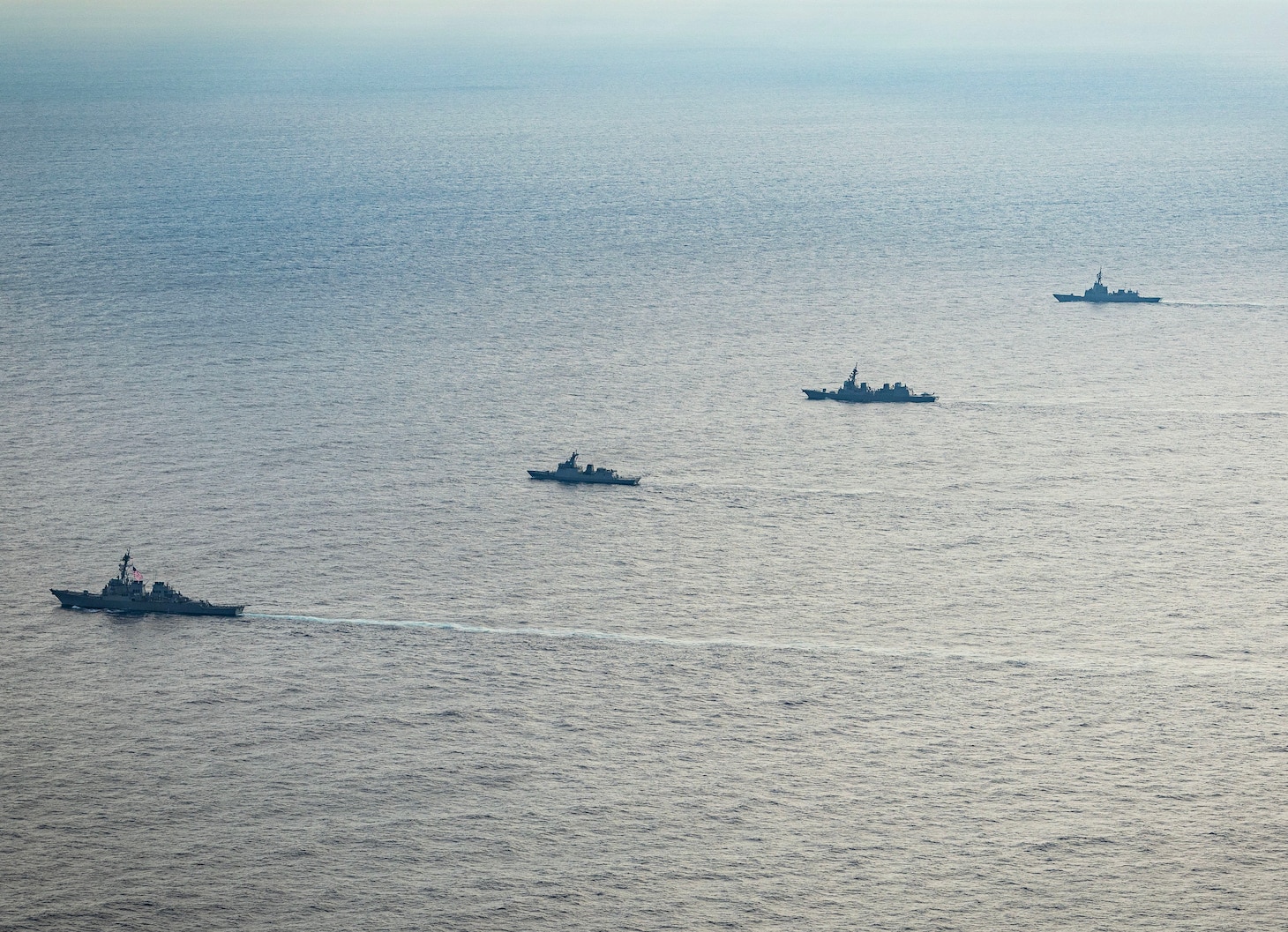‘An irreplaceable ally’ 80 years after the liberation of Manila (1)

In a declaration that sounds more like a renewal of a marriage vow than the usual cut-and-dry political statement, the United States likened the Philippines to “an irreplaceable US ally for seven decades.”
To foreign affairs observers on this side of the Pacific, the wording of the “fact sheet” and the timing of its release speak volumes about how the US and the Philippines have continued to embrace each other since the liberation of Manila and the archipelago in 1945, which ended the bitterly fought Pacific War against Japan.
The US state department issued the statement last Jan. 20, the first day of the second Trump administration on which President Donald Trump issued a flurry of executive orders that have since upended the US and institutionalized the “America First” policy.
The fact sheet titled “U.S. Security Cooperation with the Philippines” was penned by the state department’s bureau of political-military affairs (tinyurl.com/44vxaunp) and covered a broad panorama of the context of the evolving American security architecture in Southeast Asia (or Western Pacific from the US’ perspective) and the wider Indo-Pacific region.
“The Philippines has long been at the forefront of preserving the free and open regional order in Southeast Asia and the greater Indo-Pacific region,” the bureau said. It’s a comprehensive statement that dispels any doubts about the Philippines’ strategic role in maintaining peace in Asia and the Pacific, which borders the American continent.
Mutuality
The bureau then proceeded to recall where the relationship began and blossomed, in 1951. In that year, officials of America and the Philippines, still reeling from the utter destruction wrought by World War II’s Battle of Manila, found it in their hearts to sign the Mutual Defense Treaty (MDT), as “a foundation for the close security cooperation between the two countries.”
Like a marriage license, the MDT has a binding effect on the two countries for the foreseeable future. Although their relationship is asymmetric, they vowed to help each other militarily. America pledged to protect the Philippines in the event of an attack by a foreign power in Philippine territory.
But let’s acknowledge the elephant in the room. Amid the US pivoting to an “America First” approach to foreign policy and trade under the Trump administration, can the US unilaterally abrogate a treaty such as MDT to further its domestic and overseas interests?
The short answer is yes. “Either Party may terminate it one year after notice has been given to the other Party,” says Article VIII of MDT, signed in Washington on Aug. 30, 1951, and subsequently ratified by both countries the following year.
But barring such abrogation, the MDT “shall remain in force indefinitely,” a provision that is very familiar to Filipinos who have no personal appreciation or experience of divorce, which is outlawed in the Philippines.
But enough of “what ifs.”
The heart of this conjugal relationship, paid for by the blood, sweat, and tears of Filipino and American soldiers since World War II, is Article IV: “Each Party recognizes that an armed attack in the Pacific Area on either of the Parties would be dangerous to its own peace and safety and declares that it would act to meet the common dangers in accordance with its constitutional processes.”
In case it’s not clear enough, the succeeding Article V dispels any doubt: “For the purpose of Article IV, an armed attack on either of the Parties is deemed to include an armed attack on the metropolitan territory of either of the Parties, or on the island territories under its jurisdiction in the Pacific or on its armed forces, public vessels or aircraft in the Pacific.”
“Seventy-two years after its signing, the alliance continues to thrive in the ever-evolving security environment that surrounds the Philippines,” according to the bureau, keenly aware of the bilateral defense guidelines in May 2023 that addressed “gray zone” scenarios.

“Hands off”
Secretary of State Marco Rubio himself renewed this solemn pledge during his confirmation hearing before the US Senate Committee on Foreign Relations on Jan. 17. Rubio warned China against doing “anything rash or irrational” in the Philippines or Taiwan. “The actions they are taking now are deeply destabilizing; they are forcing us to take counteractions because we have commitments to the Philippines and we have commitments to Taiwan that we intend to keep,” said Rubio. He doubled down on this warning during a phone call to Foreign Secretary Enrique Manalo on Jan. 22 in which Rubio “underscored the ironclad US defense commitment to Manila,” according to a Reuters report.
Now, this is the most explicit assurance yet from the Trump administration of continuity in US policy regarding the rules-based order in the Indo-Pacific. Rubio’s statement is a powerful opening salvo that warns all players in the Indo-Pacific to keep their hands off the Philippines and its waters.
—————–
For comments: mubac@inquirer.com.ph


















